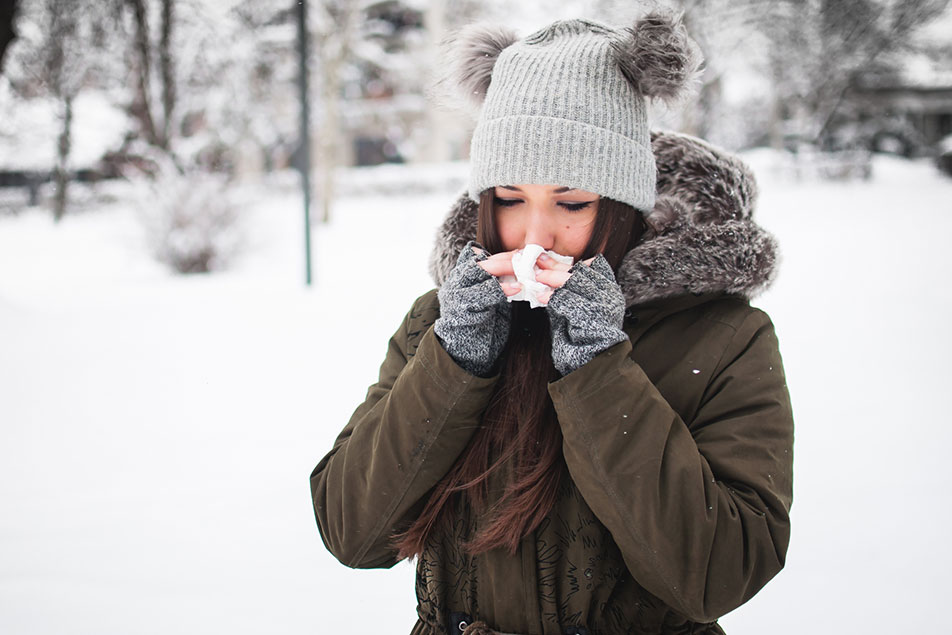Most of us have had our mother, or our grandmother, lecture us about our attire or behavior during the chilly winter months. “Don’t go out there like that! You’ll catch a cold!” But how much does the temperature affect our health? We went to Rhonda Sharp, MD, PPG - Family Medicine, LaGrange, and Rose Wenrich, MD, PPG – Family Medicine, Wabash, for some answers.
True or False: You’ll catch a cold if you go outside with wet hair.
Dr. Sharp: If you go outside with wet hair and run in to someone with a cold virus, you could get a cold (but it didn't matter that your hair was wet).
Dr. Wenrich: Going out in the cold with wet hair does not make you get sick. However, if your immune system is not strong, getting a chill from wet hair could stress the immune system for those at risk, making one more prone to illness.
True or False: Winter and cold temperatures make your cold or flu worse.
Dr. Sharp: Colds and flu are caused by viruses. The cold weather causes us to spend more time indoors and around other people, possibly increasing our risk of exposure. There is some thought that colder temperatures may help viruses replicate more easily.
Dr. Wenrich: People can get sick with a cold in any time of year. Flu season in our country frequently hits during the winter months. Sometimes colds seem more miserable in the winter perhaps because of the dry air indoors from the furnaces. I think dropping vitamin D levels as our sun exposure wanes could contribute to seasonal illness. In the old days, moms gave their kids cod liver oil in the winter to keep them healthy. Cod liver oil contains vitamin D, omega 3 and vitamin A.
True or False: You should feed a fever, starve a cold.
Dr. Sharp: In both cases you should drink lots of fluids and eat when hungry. Eating can help raise your temperature which can help fight "bugs."
Dr. Wenrich: I am unaware of any science to back this saying. Both conditions warrant good hydration and good nutrition.
True or False: You lose the most heat from your head.
Dr. Sharp: You lose the most heat from whatever is uncovered. So if you have a hat on and short sleeves, it'll be your arms that you lose the most heat through.
Dr. Wenrich: You don’t lose more heat from your head than other parts of the body. Typically when you’re outside, you have clothes on, but perhaps not a hat. You will lose heat from any area that isn’t covered.
True or False: The cold makes your nose run and eyes water.
Dr. Sharp: Your nose runs because it makes more mucous to help warm and moisturize the cold, dry air. Your eyes water typically because the air is drier and it is usually windy both of which cause your eyes to dry out so they make extra tears.
Dr. Wenrich: Cold stimulates tear production to protect the corneas from the wind, cold and dryness. Cold stimulates a runny nose because the nose’s job is to provide warm, moist air to the lungs. If dried out from wind or cold, the nose produces mucous to protect and moisturize.
True or False: Vitamin C is the best cure for a cold.
Dr. Sharp: Vitamin C has not been shown to cure the common cold.
Dr. Wenrich: Vitamin C will not cure a cold, but I think it is very important for our immune system to help fight the cold and detox our bodies in general. There is data that people with COPD benefit from vitamin C in the winter to help stay healthy from lower respiratory tract infections.




